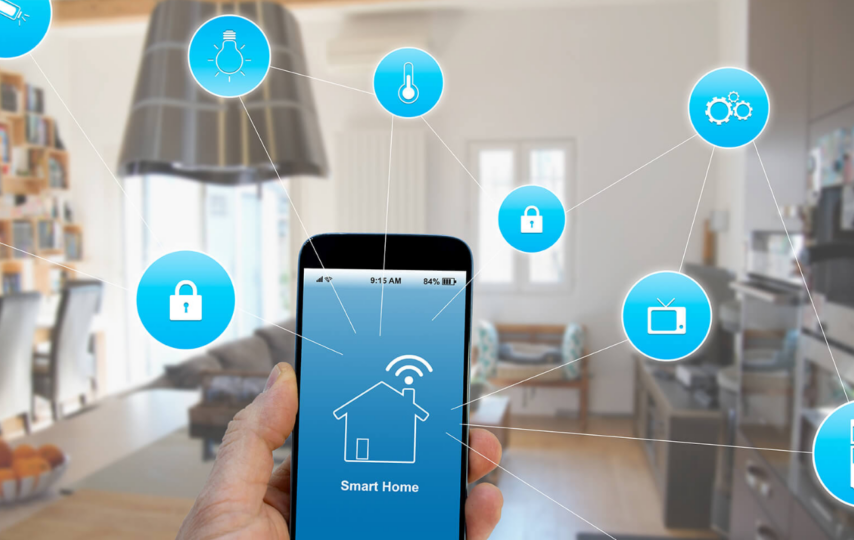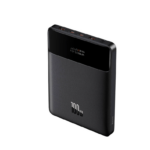In our ever-evolving digital landscape, smart home technology has emerged as a groundbreaking concept that is revolutionizing the way we live. With its ability to automate and optimize various aspects of our homes, smart home technology offers unparalleled convenience, energy efficiency, enhanced security, and an improved quality of life. In this article, we will delve into the exciting realm of smart home technology, exploring its benefits, features, and the endless possibilities it presents for the future of living.
The Rise of Smart Home Technology
Smart home technology represents the integration of various devices and systems within our homes to create an interconnected network. By leveraging the power of the internet and wireless communication protocols, smart homes enable us to control and monitor devices remotely, providing unprecedented convenience and efficiency.
With a few taps on a smartphone or a voice command to a smart speaker, we can control numerous aspects of our homes. Imagine being able to adjust the temperature, turn on the lights, or even start the washing machine while sitting on the couch or away from home. Smart home technology allows us to achieve this level of convenience and control, making our lives more efficient and enjoyable.
Smart thermostats, for instance, learn our heating and cooling preferences and adjust accordingly, optimizing energy usage. Lighting systems can be automated to turn off when rooms are unoccupied or adjusted based on natural light levels, minimizing wastage. By monitoring and managing energy usage intelligently, smart homes contribute to a greener and more sustainable future.
Enhanced Security and Peace of Mind
Home security is a top priority for homeowners, and smart home technology offers innovative solutions to address this concern.
With the integration of smart cameras, motion sensors, and door locks, homeowners can remotely monitor their homes and receive instant notifications in the event of unusual activities. These features provide peace of mind, knowing that our homes and loved ones are protected.
Improved Quality of Life
Smart home technology goes beyond convenience and security; it also enhances our overall quality of life. For instance, advanced home automation systems can create personalized environments by adjusting lighting, temperature, and even music preferences to suit our moods and activities. Smart appliances, such as refrigerators and ovens, offer innovative features like inventory tracking and recipe suggestions, making daily tasks more efficient and enjoyable. By seamlessly integrating technology into our homes, smart home systems enrich our lives in ways we never thought possible.
The Future of Smart Home Technology
The future of smart home technology is filled with exciting possibilities. Here are some emerging trends to watch out for:
a. Artificial Intelligence (AI) and Machine Learning: Smart home systems will become smarter, learning our habits and preferences to automate tasks and make intelligent recommendations. AI-powered assistants will become even more sophisticated, providing personalized experiences tailored to our individual needs.
b. Internet of Things (IoT) Expansion: More devices will join the smart home ecosystem, allowing for seamless integration and control over various aspects of our lives. From smart TVs and home appliances to wearable devices, the IoT landscape will continue to expand, creating a truly interconnected living environment.
c. Voice Control Advancements: Voice assistants will become more intuitive and powerful, offering natural language processing and understanding, enabling more seamless and conversational interactions. This will further enhance the convenience and accessibility of smart home technology.
d. Enhanced Data Privacy and Security: As smart homes become more prevalent, there will be an increased focus on ensuring the privacy and security of personal data. Robust encryption protocols and strict data privacy regulations will safeguard user information, fostering trust and confidence among users.
e. Integration with Smart Cities: The future of smart home technology lies in its integration with smart cities. As cities become more interconnected, smart homes will play a vital role in optimizing energy consumption, improving transportation systems, and enhancing overall urban living.
f. Health and Wellness Integration: Smart home technology will increasingly focus on health and wellness aspects, integrating with wearable devices and health monitoring systems. This will enable personalized health insights and recommendations, promoting a healthier lifestyle.
g. Enhanced Accessibility: Smart home technology will strive to be more inclusive, with features designed to cater to individuals with disabilities or special needs. From voice-activated controls to automated assistance, smart homes will provide an inclusive living environment for all.
Overcoming Challenges
While the future of smart home technology is promising, there are challenges that need to be addressed.
As smart homes collect and process vast amounts of personal data, it is essential to establish
robust security measures and strict regulations to protect user information from unauthorized access or misuse.
Another challenge is the interoperability of devices from different manufacturers. To fully realize the potential of smart home technology, seamless integration and communication between various devices and systems are crucial. Standards and protocols need to be established to ensure compatibility and interoperability across different platforms.
Furthermore, there is a need for increased awareness and education among users to fully understand and utilize the capabilities of smart home technology. Many individuals may be hesitant to adopt these technologies due to concerns about complexity or potential risks. By providing clear information and user-friendly interfaces, smart home technology can become more accessible and user-friendly.
The continued advancement of smart home technology looks promising for the future. With each progress, we move closer to a world where homes are intuitive, adaptable, and easily responsive to individual needs and preferences.Our home learns our habits and preferences and automatically adjusts settings to create the perfect atmosphere as you enter each room.
Moreover, the impact of smart homes extends beyond individual households. They contribute to a larger ecosystem of smart cities where interconnected homes work with other infrastructure to optimize resource use and reduce environmental impact.
Conclusion:
Our homes are becoming dynamic environments that easily adapt to our needs and preferences, providing comfort, convenience and peace of mind. The future of the smart home is bright and by continuing to capitalize on these advancements.








